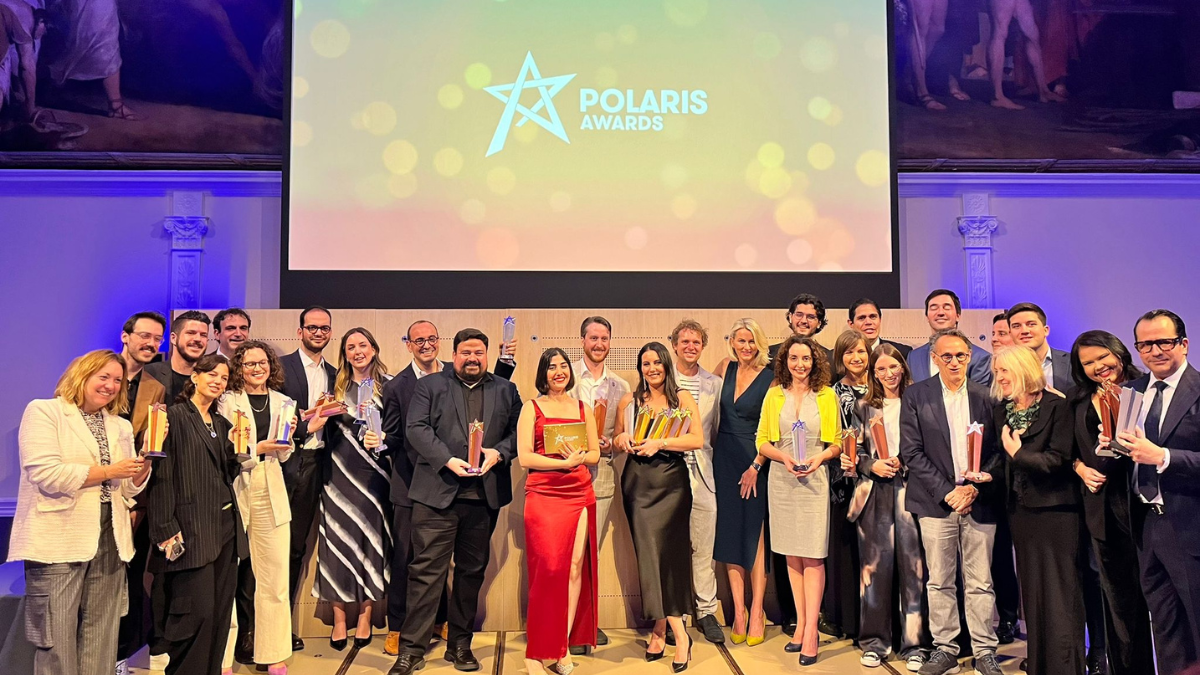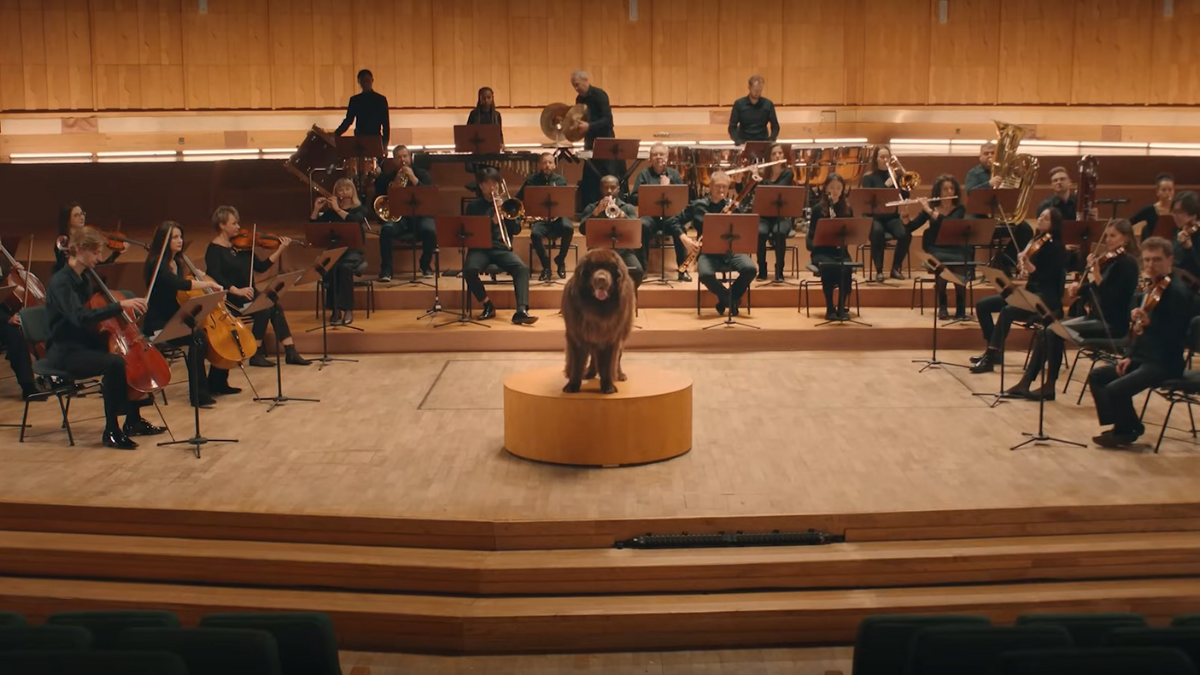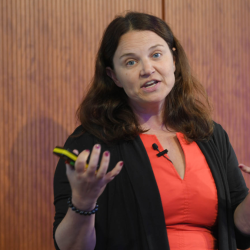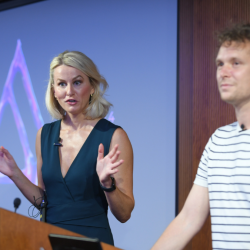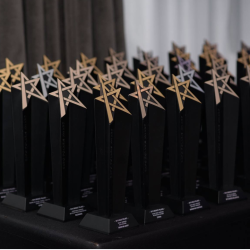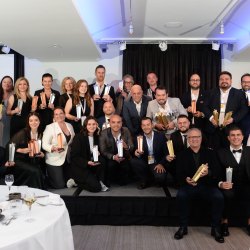The sixth annual Polaris Leadership Summit and Polaris Awards brought together the global political and public sector communications industries in London on 21 June for a day of insight-packed learning. Organised by Kapital Media Group’s London office, this year’s event focused on the theme ‘The New Age of Intelligence.’ The event, which addressed the impact of emerging technologies on politics and communication, kicked off with a panel discussing social and political trends affecting democracies. Moderated by Cicero Group’s Head of Political Communication Chris Wimpress, the panel featured Atalanta Founder and CEO Eva Barboni and Pew Research Center’s Director of Global Attitudes Research Richard Wike. The panellists discussed the threats posed by anti-democratic trends, including the rise of far-right parties in Europe.
Sharing results from a Pew Research study conducted in 24 countries, Wike noted that 77% of the respondents still support representative democracy, but half are dissatisfied with political elites and believe leaders do not care about the opinions of citizens.
Panellists emphasised that this attitude can only be changed by electing a political elite that is more representative of society. Talking about various obstacles, the panellists stated that rising online political violence translates into real life, posing a serious risk for politicians.
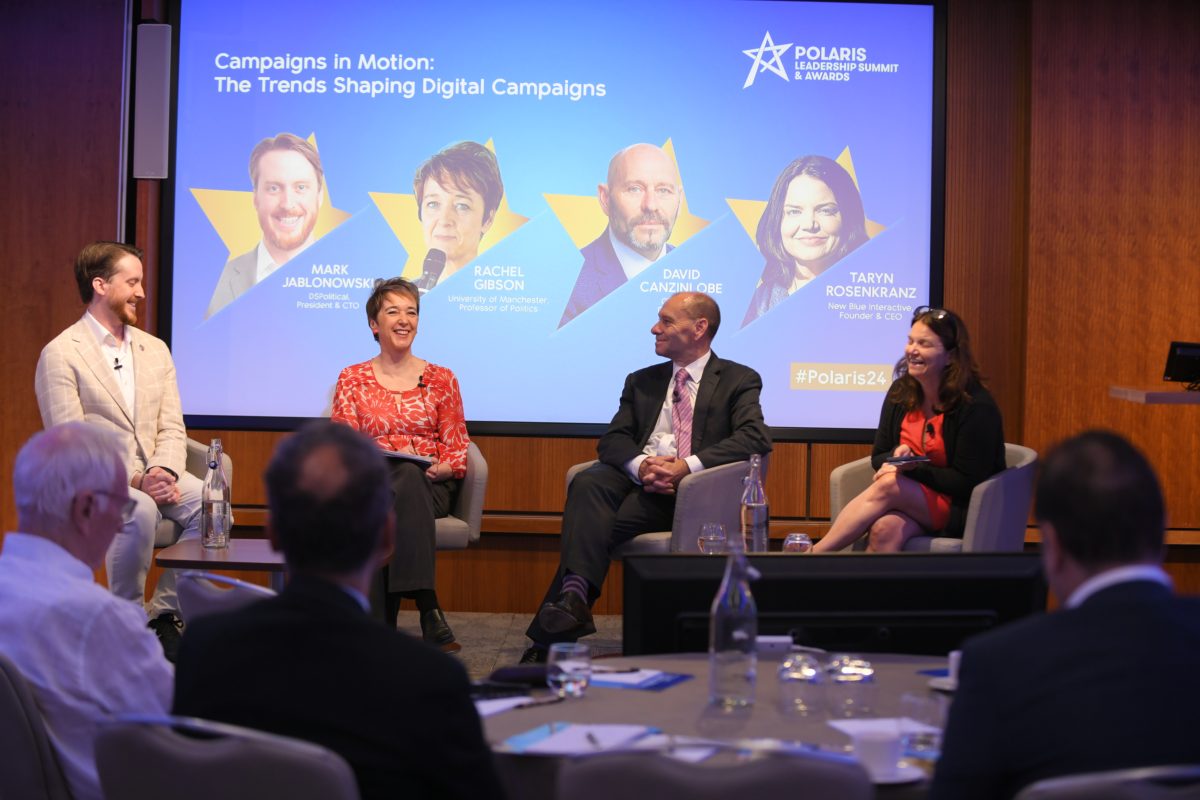
A separate panel featuring DSPolitical President and CTO Mark Jablonowski, University of Manchester Professor of Politics Rachel Gibson, CT Group Director David Canzini OBE, and New Blue Interactive Founder and CEO Taryn Rosenkranz discussed trends shaping digital campaigns. Canzini highlighted that in Europe, strict spending limits for elections necessitate that political parties be more agile and creative compared to the corporate world.
One of the event’s most anticipated sessions, moderated by The Appraise Network’s Founder James Boyd-Wallis, featured Best Practice AI’s Founder Tim Gordon and King’s College Professor of Practice in AI Sana Khareghani, discussing the impact of AI on the public sphere.
Thoroughly examining the opportunities and risks of AI, the session offered significant recommendations for both the public and private sectors. Panellists stressed that AI systems mirror societal issues rather than solving them and highlighted the importance of having a unified method for sorting and storing data to fully leverage AI’s potential.
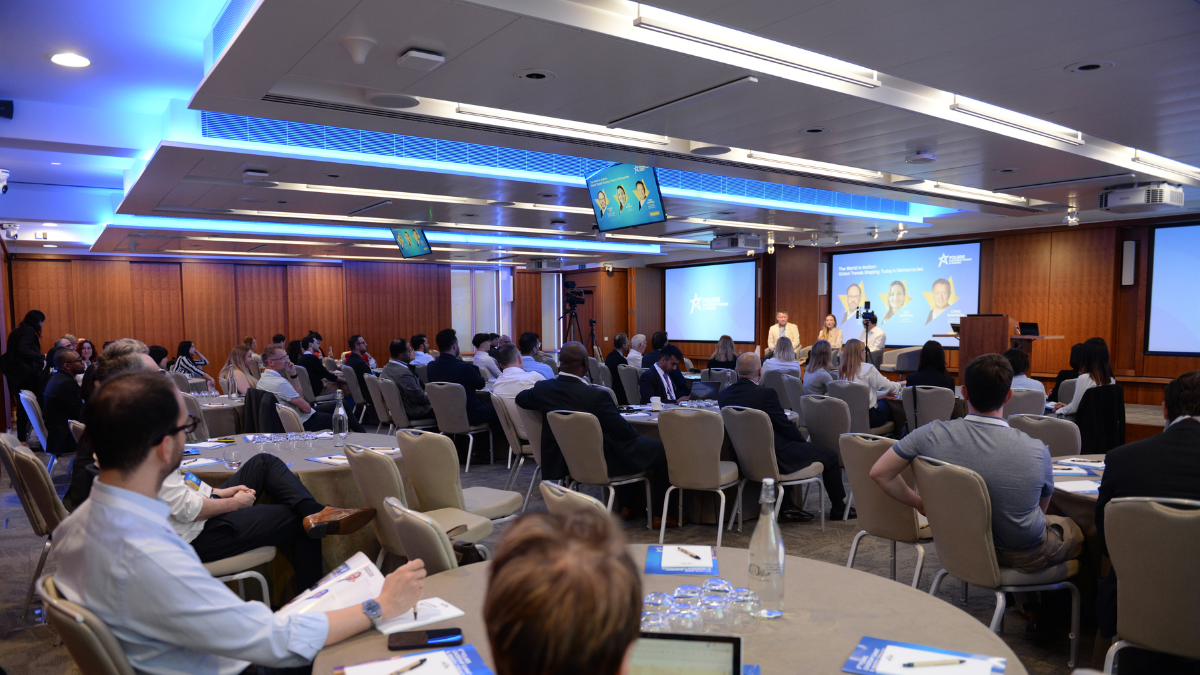
TikTok, content creators and elections
In addition to the impact of AI on political communication, the summit discussed the growing influence of content creators, influencers, and TikTok on politics and elections. Sean Topham, founder of Topham Guerin, detailed his successful TikTok campaign for New Zealand’s new Prime Minister Christopher Luxon, emphasising that in today’s social media ecosystem, political candidates compete not just with other parties but with all advertisers. He stressed the importance of being present where the voters are and tailoring content to platform trends.
Good Influence Founder Stuart Perelmuter explained how influencers are being used in the US presidential campaigns. Setting the scene, Perelmuter mentioned that voters have record-low trust in traditional media and are turning to trusted influencers for news and opinion. Revealing that the use of influencers can unlock incomparably bigger audiences for political parties and candidates, Perelmuter emphasised the importance of ensuring the content creators remain authentic in their talking points.
Polaris Awards celebrates excellence in public sector and political communication
One of the most eagerly anticipated moments of the Polaris Leadership Summit was the Polaris Awards ceremony, which celebrated creativity in global political and public sector communication.
Evaluated by over 50 judges from 25 countries, the Polaris Awards recognised campaigns that leveraged creative effectiveness to create change. This year, 6 Gold, 25 Silver, and 32 Bronze Polaris Awards were awarded to works from countries from across the globe, including the US, UK, Brazil, Canada, Croatia, Italy, Austria, Türkiye and Mexico.
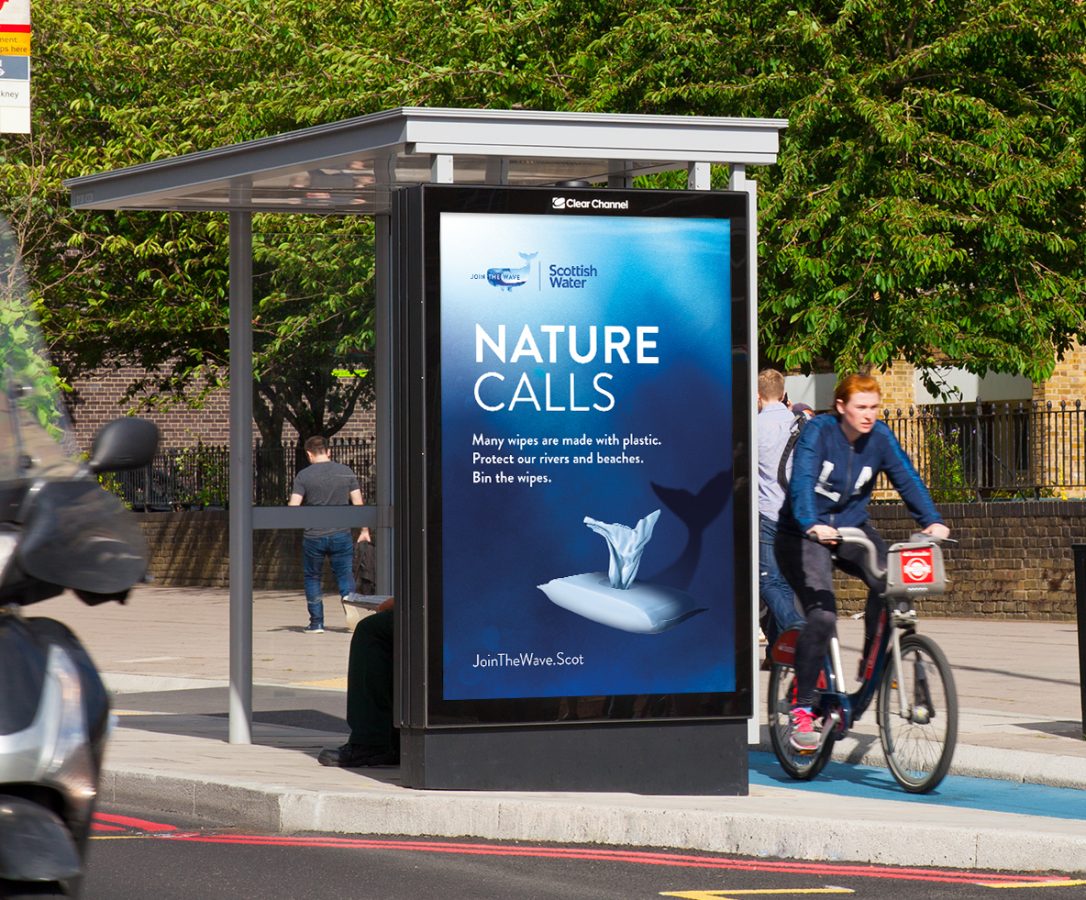
The teams behind the Gold Polaris-winning campaigns presented their cases at Polaris Leadership Summit. Scotland-based agency Always Be Content won the most Gold Polaris this year for their campaign ‘Nature Calls,’ carried out on behalf of Scottish Water. Always Be Content’s Content Strategist Elektra Vais explained that the campaign aimed to address the issue of flushed wet wipes causing blockages, which costs Scottish Water £7 million annually. Highlighting the environmental impact of non-biodegradable wipes, the campaign used visuals depicting marine life to change public behaviour. Utilising TV, cinema, radio, social media, and OOH, the incredibly successful campaign increased Scottish Water’s recognition by 69% and reduced annual blockages by 14%.
Featured image: Polaris Awards




















